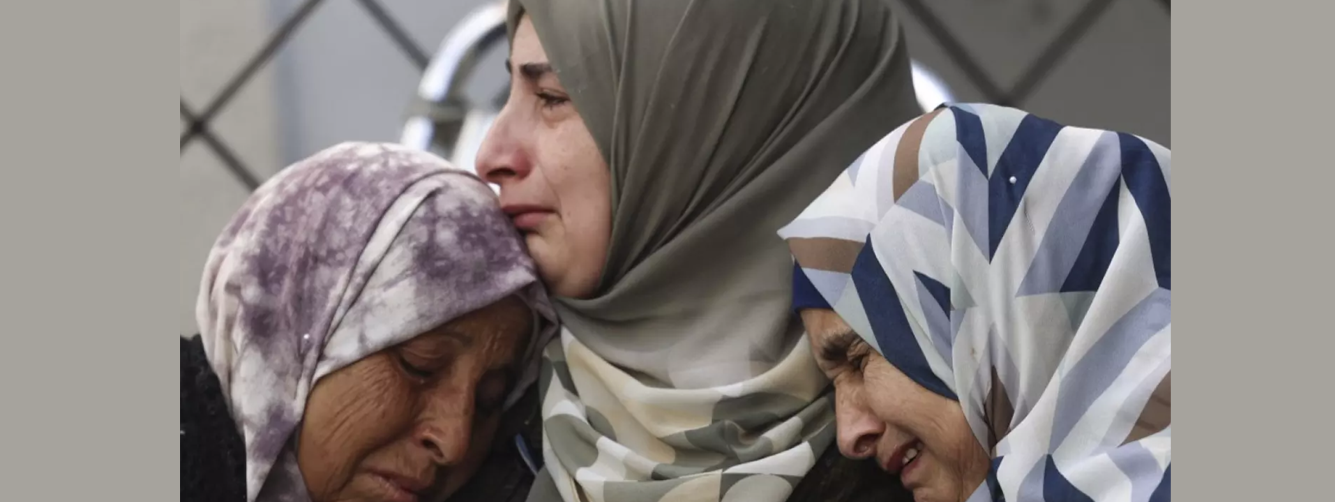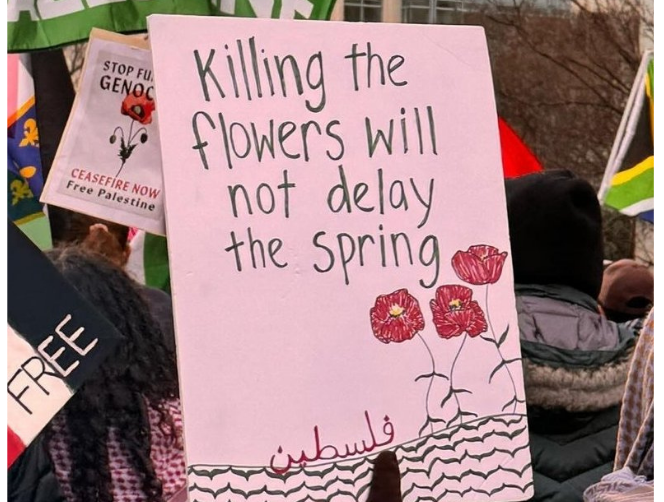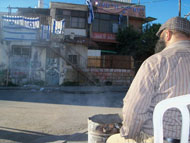
A friend of mine skipped out to Jordan to renew her visa, recently. She is among the many foreigners working in the West Bank that have to play the tourist card to remain in the country. A first-time bridge crosser, we spent a long time strategizing how to ensure, as much as we could, that she would not be denied entry by Israeli border patrol. Despite it being her first re-entry, we discussed in detail and at length what her excuse for wanting to be in the country another couple months would be. Thankfully, with the help of a little acting, my friend has returned victorious with another three-month tourist visa stamped securely into her passport. She decided to have fun with the young security woman interrogating her and pretended to be a rich airhead who wanted to scope out Israel’s beach scene.
As the time approaches for me too, to leave and renew, I have become consumed by my re-entry strategy; thinking about what I should pack, what I would say, how I should act, and what I will wear. My situation is noticeably different than those of my other international peers – I have an Arabic sounding name, come from a Muslim family who spent time in the Middle East, and wear a head scarf. When I was first planning on coming into the country, I asked a lot of different people for advice on how to best ensure being allowed entry, especially given my background. These were the basics: Find a contact in Israel to vouch for you, do not mention anything about visiting the West Bank, and act as American, or as western, as possible. Some even suggested I take off my scarf. Although interesting, it was not an option I was willing to surrender to and believed it was ultimately unnecessary. It was this last piece of advice that has eaten away at me. It enrages me that I am made to feel that I need to try to cover up my “Arab-ness” or “Muslim” identity in order to satisfy the Israelis who have the power to deny or allow me entry into a country they illegally occupy.
It’s racist.
This shouldn’t be surprising, though. Israel’s border entry policies are just another blatant reminder of the racism and xenophobia ingrained into its Zionist doctrine. Let me break it down: In establishing its racially exclusive state in 1948 by expelling the majority of the indigenous Palestinian population from the land they had been on for centuries, Israel’s Zionist policies have trampled over the land and its people’s history by espousing the belief in racial superiority and the exclusion of non-Jews. Based on this, it’s unfortunately expected that I - who simply from the outset so closely resembles those the state discriminates against and removes from its soil daily - would be viewed as a “potential threat.”
This is not to say that white, western foreigners have not been denied entry. They have. Being part of a network of internationals working in the West Bank, we hear all kinds of stories of those who have been denied entry, or deported. There have even been instances of deportations via night raids. The most recent case to make headlines was that of the Jewish-American editor of Ma’an news, Jared Malsin, who was detained at Ben Gurion Airport, interrogated, and then deported back to the US, followed by his girlfriend Faith Rowold, an American church volunteer. Additionally, Right to Enter – the Campaign for the Right to Enter the Occupied Palestinian Territory (oPT) – exposes various testimonies of those who have been turned away at border crossings. The reasons are predominately farcical. They range from being completely random and inexplicable, to having one’s name searched online and finding that the person in question has 'criticized Israel'. Yes, Israeli border officials’ latest weapon seems to be Google. Those who do get in, but mention that they are going to the West Bank, are slammed with a PA-only stamp.
There’s often little to nothing we can do if we are denied entry. At best, our consulates may attempt to argue with Israeli officials on our behalf, but the likelihood of even that is slim and eventually we are told that, “It is up to Israel’s digression as a sovereign state who it allows within its borders.” Ultimately, such racist policies are condoned by the international community. Whether through the futile banter of politicians in the Middle East, or the silent acceptance of states in the West, the status quo of racism that Israel has established through its policies, are pardoned. The US, for its part, only encourages these actions. For starters, supporting its buddy Israel, the US does not attend the UN Conference on Racism, Intolerance and Related Xenophobia, refusing to accept that Zionism equates to racism.
As I sit here and gripe about the hassle of foreigners entering the oPT, however, it would be unacceptable not to mention the countless number of Palestinians who are repeatedly turned away from the border and the plight of their families from whom they are separated. In 2006, the Arab-American Institute reported that 120,000 Arab-Americans were “adversely affected by Israel’s policies” and often denied entry into the country. Upon applying for visa extensions, foreign passport holders who are married to or the children of Palestinian ID-holders are labeled as “last permit” by Israeli authorities. If they overstay their visas, they are considered “illegal,” arrested, and immediately deported. To avoid facing such consequences, and to prevent being separated from their loved ones, most of these Palestinians move their families abroad. This policy of refusing visa renewals for Palestinian family members is part of Israel’s effort to deny foreign nationals either of Palestinian origin or who are pro-Palestinian, entry into the oPt.
Sure, it’s a pain to have to play the re-entry game as an international, especially as a Muslim from the Middle East. As foreigners, being in tourist-visa limbo “interrupts our plans” and hinders our ability, and that of the organizations we work for, to complete projects. Through Israel’s visa renewal policies, it’s interesting to observe how the media so often reflects our attitudes towards the Palestinian situation. We, as a global community, have become indifferent to the ordeal of Palestinians entering this country, yet shake our heads appalled that Israel would have the audacity to turn away a white American or European. It’s abominable that we’ve come to expect, and accept Israel’s racist policies. As for me, I plan to hum my way through Israel’s border security, singing that 70s tune, “It’s a strange, strange world we live in, Master Jack.”
Hajr Al-Ali is a Writer for the Media and Information Department at the Palestinian Initiative for the Promotion of Global Dialogue and Democracy (MIFTAH). She can be contacted at mid@miftah.org.










